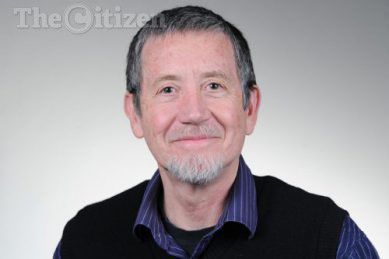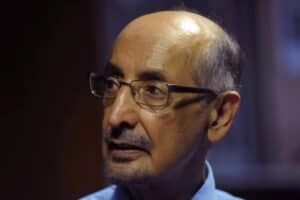Winnie was complex and contradictory. If you see only the bad, you deny her humanity.

Winnie Madikizela-Mandela would have been justified if she had refused to sit next to me at the Johannesburg Press Club, where she was guest speaker in February 1998. If she had scolded me, that would have been appropriate.
Instead, she did something surprising.
I had been exceptionally critical. From mocking her DaliANCe with Dali Mpofu, to being scornful about her Truth and Reconciliation Commission performance, nothing was spared. I publicised Fred Bridgland’s book, Katiza’s Journey, which exposed Winnie’s Mandela United Football Club. There were references in the paper to the murders of Stompie Seipei, Lolo Sono and Sibuniso Tshabalala.
I was a foremost detractor of the “Mugger of the Nation”.
At the club, I introduced myself to Winnie, mentioning that I had written terrible things about her. Astonishingly, she placed her hand on my knee and said: “I know, don’t worry.”
We got on well, talking at length. In the coming months, we bumped into each other at several events, including a Three Tenors performance in Pretoria and an R&B concert at Ellis Park. On each occasion, including the Press Club function, her personal magnetism was overwhelming.
When she walked into a venue, she would command attention simply by her presence. More so than any other person I have met, including her former husband.
At Ellis Park, we in the president’s suite witnessed a close encounter between two larger-than-life figures: Winnie and our host, Louis Luyt, king of the Lions’ den.
The frisson created when Winnie entered the reception area reached a crescendo as guests stepped aside to watch these two stride boldly towards each other. I wish someone with a camera had captured the mutual bear-hug. It would have made a great front-page picture, given the public perceptions of Winnie and Luyt.
That evening Winnie and I chatted for a long time, but over the years the exchanges dried up. She once offered advice while I was engaged in a media clash with former president Thabo Mbeki and his spokesperson, Parks Mankahlana, who died in 2000.
Winnie was always encouraging, supportive. That is the key. So when analyst Karima Brown was paying tribute on Monday evening, I understood what she meant. Brown said Winnie didn’t just inspire people, she made them believe in themselves and the ultimate success of their struggle. Winnie had that effect on people. She could instil self-belief in others. That made her a powerful life-force.
Winnie was complex and contradictory. If you see only the bad, you deny her humanity. Few of us can imagine how much pain she endured while trying to sustain her family and the anti-apartheid struggle during her husband’s long imprisonment.
Banished, banned, imprisoned, tortured, harassed, subjected to all manner of security force dirty tricks, she remained defiant. As Helen Suzman told the BBC in 1986: “You need a special kind of fortitude to withstand that type of punishment”.
Winnie emerged stronger in some ways, damaged in others. Her popularity is not built entirely on struggle myth.
At the core was a charismatic person with a social worker’s heart, who was loved for the warmth and courage she spread. Hamba Kahle.

DA city of Joburg councillor Martin Williams.
Also read:
//
For more news your way, follow The Citizen on Facebook and Twitter.
Support Local Journalism
Add The Citizen as a Preferred Source on Google and follow us on Google News to see more of our trusted reporting in Google News and Top Stories.






